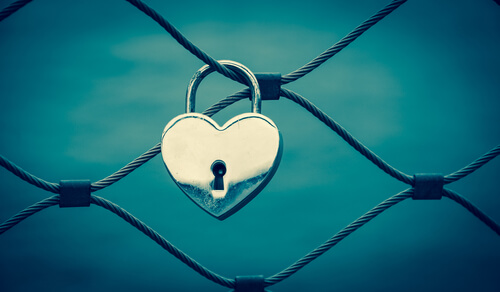5 Keys to Overcoming Emotional Dependence

We human beings are “social animals” and we need others; that is indisputable. But how much do we need them? Where is the line that distinguishes a healthy connection from an emotional addiction?
Contact with others is necessary for our development. Children need someone to care for them, someone who not only gives them food, but also human warmth and affection. In order to have a fulfilled life when we grow up, it is necessary for us to have a social circle: relatives, friends, a partner…
But it is one thing to talk about the need for social contact in general, and another altogether to discuss concrete relationships that we dedicate ourselves to and to how we live them.
Emotional dependence
Often, and especially in partner relationships, emotional dependency or addiction comes into play, and the relationship, far from being a form of support, turns into an obstacle for the development and even for the mental health of the two partners.

If you are not happy in your relationship, it could possibly be due to the fact that you are living in a position of addiction. As such, we are going to describe for you some of the signs that may indicate some level of emotional addiction to your partner.
- In the first place, if your relationship brings you suffering (such as sadness or anxiety) and you still feel incapable of changing paths or leaving them, it is highly probable that you have some degree of emotional dependence. Relationships are complicated and require effort, but not suffering.
- One of the most concrete signs of addiction is that you are not doing any activity outside of the relationship. Be it a hobby, studies, a career, friends… if everything you do is with your partner, your relationship is probably addictive or dependent.
- Another characteristic of an addiction to your partner is the inability to be alone. Maybe you have gotten so used to sharing everything with your partner that you no longer know what to do when you are alone, or maybe it is also possible that worry overwhelms you: worry that something could happen to them or about what they could be doing.
- You have thoughts or you believe that you could not live without that person or that our life would have no meaning without them, that they are your whole world. These ideas are characteristic of a dependent relationship.
- Jealousy is often another good indicator of an addictive relationship, as it is related to insecurity and a lack of communication.
Emotional dependence can have many causes. In some cases, it may be due to the fact that we have not learned to tolerate the suffering inherent in life and therefore we are not able to abandon partners that hurt us because we are afraid of change or being alone. In extreme cases, we may be unable to leave even if we’re suffering mistreatment or abuse.
In other cases, because of self-esteem issues, we end up being dependent on our partners to make us feel good about ourselves, admire us, or give us the security that we do not have ourselves.
Whatever the reason may be, in the end, addiction to a partner is always the problem of the individual who is suffering, who has to work on themselves so that they can establish healthy relationships; on the other hand, the expectations, asking too often for company, the jealousy… these things will end up wearing away at their relationships.
“Do not let your partner take up your entire being and your mind in such a way that there is no room for you. Loving is not disappearing.”
-Walter Riso-
How can we overcome emotional dependence?

- The first thing to do is be honest with ourselves and try to look for the roots of the addiction. Maybe you are afraid of being alone because you have never had to be, maybe your self-esteem depends on your partner’s praise. Reflect on this, as it will be a fundamental pillar for you to overcome the problem.
- Come to terms with your solitude. Find spaces where you can be yourself without your partner and, above all else, enjoy them: you can start doing yoga, look for a hiking group, sign up for a photography class… surely there is something that piques your interest or that you have always wanted to do. The important thing is being able to trust in the fact that there is something about yourself that does not depend on your partner.
- Be aware of your negative thoughts, especially jealousy, fear, etc. and try to be stronger than they are. When you realize that you are falling into a spiral of negative thoughts, go take a walk through the streets, call someone to talk about it…
- Talk to your partner. Communication is a fundamental pillar in a relationship. It is a matter of sharing your experience with them so that they know what you are going through and the changes that you hope to achieve. In this way, you will be able to support yourself and better understand yourself.
- And, of course, consider the option of seeking professional help if you do not manage to find any way of making a change by yourself.
Life is a pathway of learning and when we let go of the burden, fear, and anxiety, we can enjoy everything, especially our relationships, in a much more fulfilling way.
Do you think you have or have had an addiction to your partner? How did you cope with this problem or what do you think you can do to overcome it?
This text is provided for informational purposes only and does not replace consultation with a professional. If in doubt, consult your specialist.








